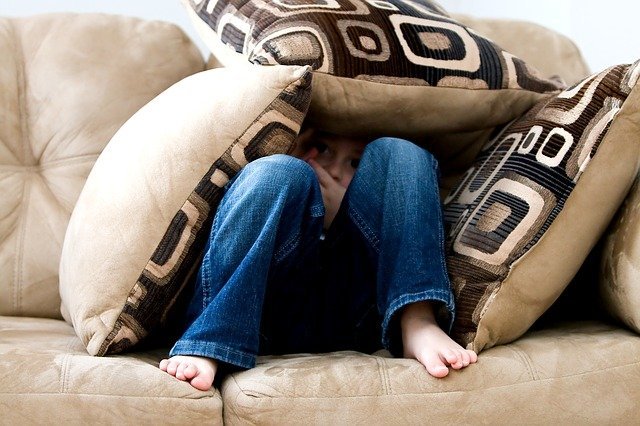
Emotional abandonment from childhood might appear like a cloud over you, coloring your world gray in the life of an adult. However, when emotional neglect is occurring actively in a kid’s life, it may seem like an ordinary, everyday occurrence.
A child who is emotionally neglected may feel like they don’t exist. They may feel that their emotional pain and thoughts are not important.
This can leave a lasting imprint on them as adults.
As an adult, you may have difficulty trusting people, especially those in authority positions.
You may also find it difficult to express your feelings, setting yourself up for problems in both personal and professional relationships.
You may also suffer from low self-esteem and feel that you are not good enough. This can lead to a life of isolation as you constantly feel like an outsider looking in.
What is childhood emotional neglect?
Childhood emotional neglect is a form of child abuse where a child’s emotional needs are not met. Emotional neglect can be caused by parents who are too busy or overwhelmed to give their children the attention they need emotionally.
It can also be caused by parents who are emotionally unavailable or uninterested in their child.
Emotional neglect can have long-term consequences on a child’s development. The child may grow up feeling not good enough, unloved, and unworthy. They may also find it difficult to trust and form relationships with others.
If you are an adult who suffered from emotional neglect as a child, there is help available. seek out a therapist who can help you address the issues that were left unresolved.
You may also find support groups helpful in connecting with others who have shared similar experiences.
Recognizing and addressing childhood emotional neglect is the first step to repairing the damage done.
With time and effort, you can learn to trust again and build healthy relationships.
How does childhood emotional neglect affect adults?
Childhood emotional neglect can have a lasting impact on adults. Those who suffered from emotional neglect may find it difficult to trust others, express their feelings, and feel worthy of love.
They may also suffer from low self-esteem and isolation.
There is help available for adults who suffered from emotional neglect as children.
Therapists can help adults address the issues that were left unresolved. Support groups can also be helpful in connecting with others who have shared similar experiences.
Signs of childhood emotional neglect
Emotional abandonment has lasting consequences beyond childhood. Many people who grew up in neglectful families continue to suffer as adults.
The consequences of childhood emotional neglect can have an impact on your connection with yourself, as well as your relationships with romantic partners, family, and friends.
- The child feels that their emotional pain and thoughts are not important.
- The child does not feel loved or valued by their parents.
- The child feels like they don’t exist.
- The child has difficulty trusting people, especially those in authority positions.
- The child has difficulty expressing their feelings.
- The child has low self-esteem.
- The child feels like they are not good enough.
- The child often feels isolated and like an outsider looking in.
If you recognize these symptoms in yourself, it doesn’t mean that you’re doomed to a life of loneliness and misery. There is hope.
What you can do?
Here are some tips from the psychologists that specialize in childhood emotional neglect and help a lot of individuals recover from it.
- Talk openly about your experiences with a therapist or in a support group. This will help you to process the emotions that you have been carrying around for years.
- Challenge your negative thoughts about yourself. Replace them with more positive ones.
- Take care of yourself physically by eating healthy and exercising regularly.
- Develop a support system of friends and family members who will provide you with emotional support.
- Focus on your strengths and accomplishments.
- Seek out positive relationships in which you can feel safe and supported.
Emotional neglect can have a profound effect on an individual’s life. If you are struggling with the aftermath of emotional neglect, there is help available.
Seek out a therapist who can help you address the issues that were left unresolved. You may also find support groups helpful in connecting with others who have shared similar experiences.
Bottom Line
Childhood emotional neglect is a form of abuse where a child’s emotional needs are not met. Emotional neglect can be caused by parents who are too busy or overwhelmed to give their children the attention they need emotionally.
It can also be caused by parents who are emotionally unavailable or uninterested in their child.
Childhood emotional neglect can have long-term consequences on a child’s development. The child may grow up feeling not good enough, unloved, and unworthy.
They may also find it difficult to trust and form relationships with others.



